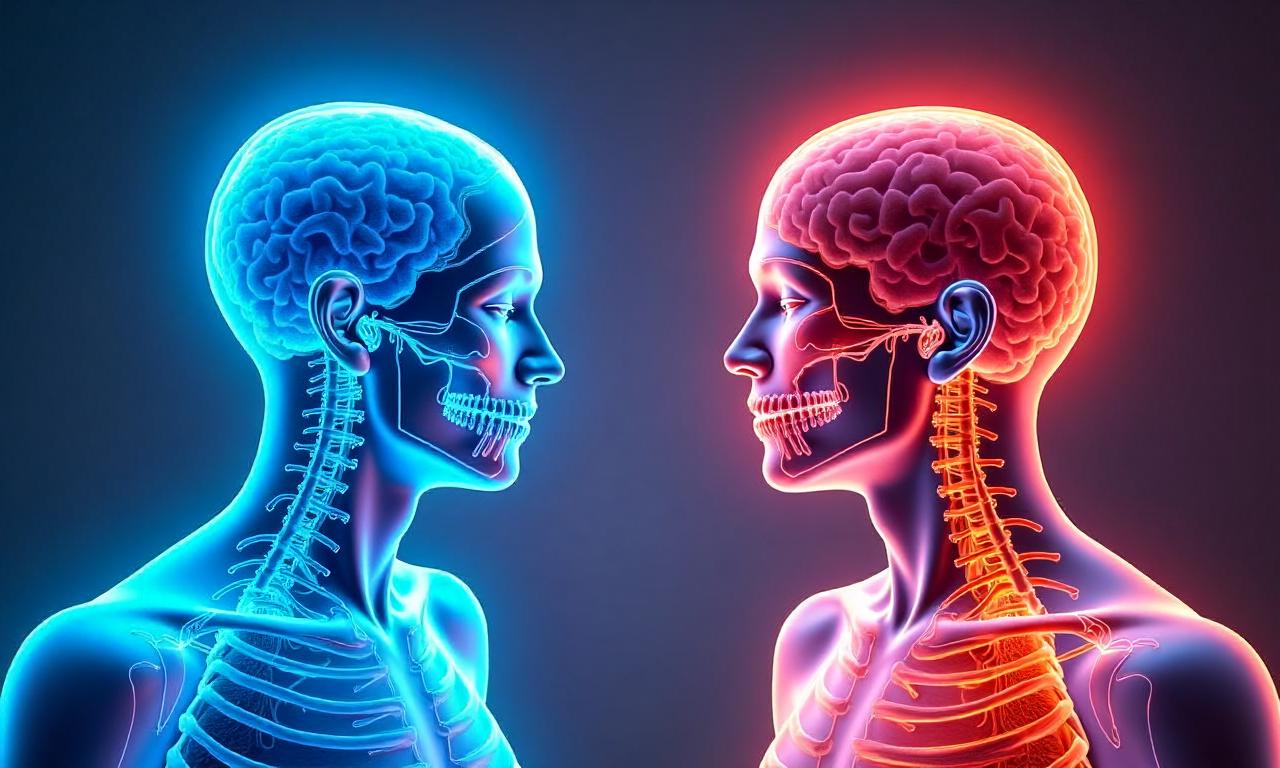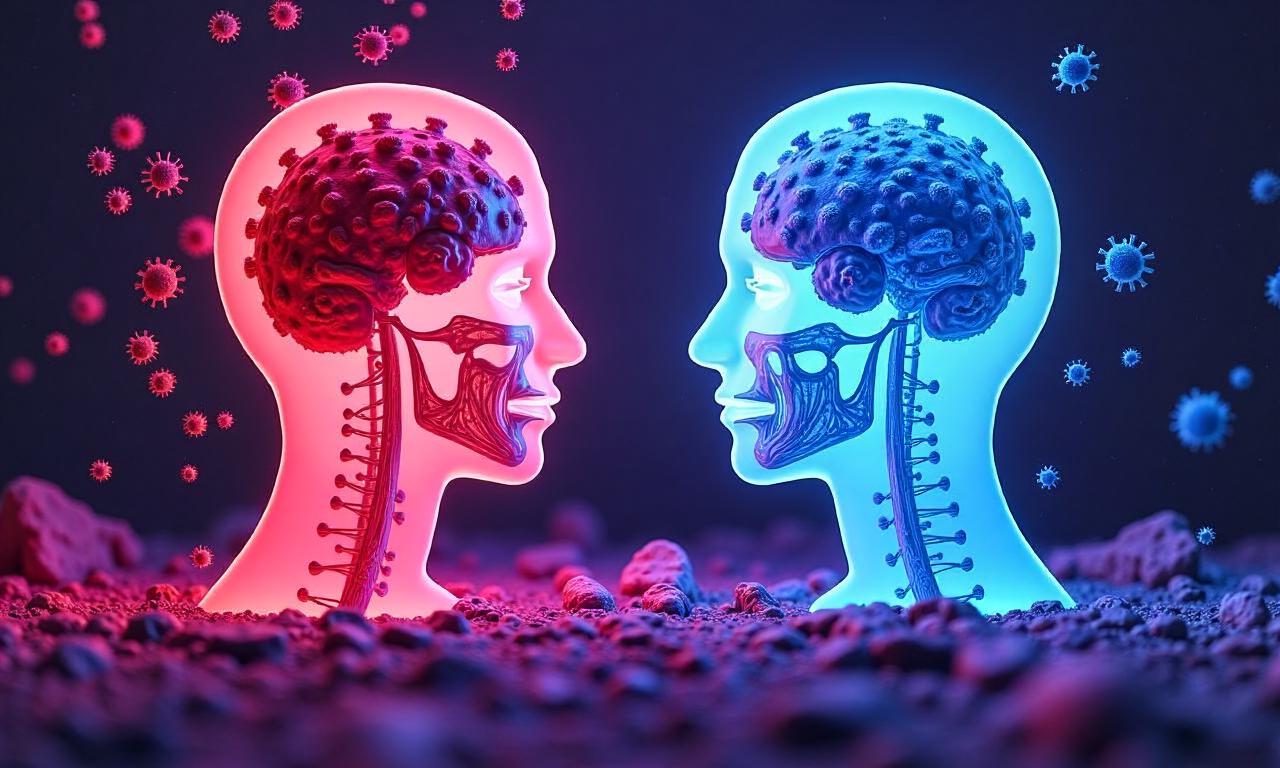Nutrient deficiency diseases arise when the body lacks essential vitamins, minerals, or macronutrients required for proper function. These deficiencies can lead to a range of symptoms that affect physical, mental, and immune health. From fatigue and hair loss to severe complications like heart disease and neurological disorders, the symptoms of nutrient deficiency diseases are often subtle but significant. Recognizing these signs early can help prevent long-term health issues and improve quality of life. In this article, we will explore the most common nutrient deficiencies, their associated symptoms, underlying causes, prevention methods, and real-world case studies. Whether you're a health enthusiast or someone experiencing unexplained symptoms, this guide provides actionable insights to identify and address nutrient-related health problems.
Table of Contents
ToggleCommon Nutrient Deficiency Diseases
Nutrient deficiency diseases are prevalent worldwide, often linked to poor dietary habits, limited access to nutritious food, or specific lifestyle factors. These conditions can manifest in various ways, depending on which nutrient is lacking. For example, vitamin A deficiency is a leading cause of blindness in children, while iron deficiency contributes to anemia and fatigue. Understanding the root causes of these diseases helps in addressing their symptoms effectively.
One of the most widespread nutrient deficiency diseases is avitaminosis, which refers to the lack of one or more vitamins in the body. Avitaminosis can lead to specific symptoms, such as vitamin C deficiency causing scurvy, characterized by bleeding gums and weakened connective tissues. Similarly, vitamin B12 deficiency may result in neurological issues, memory loss, and anemia. These diseases are not only preventable but also reversible with timely intervention.
Other common deficiencies include vitamin D deficiency, which can lead to rickets in children and osteomalacia in adults, causing bone pain and weakness. Iodine deficiency is another critical issue, often leading to goiter and thyroid dysfunction. Folate deficiency during pregnancy can cause neural tube defects in newborns, highlighting the importance of prenatal nutrition. Each of these deficiencies has unique symptoms, but they share a common thread: they result from insufficient intake or absorption of essential nutrients.
1. Vitamin A Deficiency
Vitamin A deficiency (VAD) is a significant global health issue, particularly in developing countries where malnutrition is common. This deficiency can affect vision, skin health, and immune function. One of the most well-known symptoms is night blindness, a condition where the eyes struggle to adjust to low light. This symptom often precedes more severe complications, such as corneal ulcers and even blindness if left untreated.
In addition to vision problems, VAD can lead to dry skin, hair loss, and increased susceptibility to infections. The skin becomes thin and prone to cracking, while hair may lose its shine and become brittle. Immune system dysfunction makes individuals more vulnerable to illnesses like measles and diarrhea, which can be life-threatening in malnourished populations. These symptoms are not only distressing but also indicate a deeper imbalance in the body’s nutritional needs.
2. Iron Deficiency
Iron deficiency is the most common nutrient deficiency globally, affecting millions of people, especially women and children. The primary symptom of this condition is fatigue and weakness, as iron is crucial for oxygen transport in the blood. Without enough iron, the body cannot produce sufficient hemoglobin, leading to iron-deficiency anemia. This results in reduced energy levels, dizziness, and shortness of breath, significantly impacting daily activities.
Beyond fatigue, iron deficiency can cause pica (a craving for non-food items like ice or clay) and tongue inflammation. In severe cases, it may lead to hair loss, brittle nails, and even heart problems. The deficiency is often linked to inadequate dietary intake, blood loss (such as from heavy menstruation or gastrointestinal issues), or poor absorption. Early detection through symptoms like pale skin and irregular heartbeat is vital to prevent complications.
3. Vitamin D Deficiency
Vitamin D deficiency has become increasingly common in modern lifestyles due to reduced sun exposure and dietary imbalances. The hallmark symptom is bone pain and weakness, as vitamin D plays a key role in calcium absorption. In children, this deficiency can cause rickets, leading to soft and deformed bones. In adults, it may result in osteomalacia, a condition where bones become tender and prone to fractures.
Another significant symptom of vitamin D deficiency is muscle weakness and increased risk of falls. This is particularly concerning for the elderly, as it can lead to mobility issues and injuries. Additionally, weakened immune function and mood changes like depression are linked to low vitamin D levels. These symptoms highlight the multifaceted impact of vitamin D on overall health, emphasizing the need for regular monitoring and supplementation.
Key Symptoms of Nutrient Deficiency Diseases
Identifying the symptoms of nutrient deficiency diseases is crucial for early diagnosis and intervention. These symptoms often overlap, making it challenging to pinpoint the exact deficiency without further investigation. However, certain patterns can indicate specific nutritional gaps. For instance, fatigue is a common symptom across multiple deficiencies, while skin changes may point to vitamin A or B deficiencies.
1. Fatigue and Weakness
Fatigue is one of the most recognizable symptoms of nutrient deficiency diseases, particularly in cases of iron, vitamin B12, and magnesium deficiencies. This symptom is often mistaken for general tiredness, but persistent exhaustion despite adequate rest could signal a nutritional imbalance. In iron-deficiency anemia, fatigue is accompanied by dizziness and shortness of breath, as the body struggles to deliver oxygen to tissues.
Magnesium deficiency also contributes to fatigue, along with muscle cramps and anxiety. Similarly, vitamin B12 deficiency may lead to neurological symptoms such as numbness, tingling, and difficulty walking. These symptoms often worsen over time, affecting both physical and cognitive performance. Recognizing fatigue as a potential indicator of nutrient deficiencies can be the first step toward addressing underlying health issues.
2. Skin and Hair Changes
Skin and hair changes are another set of symptoms of nutrient deficiency diseases that provide clear visual clues. Vitamin A deficiency is associated with dry, scaly skin and brittle nails, while biotin deficiency may result in hair loss and a rash around the nose. These symptoms are often linked to deficiencies in fat-soluble vitamins, which play a vital role in skin health and cell growth.
Zinc deficiency can also cause skin sores and delayed wound healing, whereas vitamin C deficiency leads to scurvy, characterized by bleeding gums and loose teeth. Vitamin B complex deficiencies (like B2 or B6) may cause skin rashes and hair thinning. These changes are not only cosmetic but can also signal underlying health problems, such as impaired immune function or metabolic disorders. Monitoring these signs can help detect deficiencies before they progress to more severe conditions.
3. Immune System Impairment
A weakened immune system is a critical consequence of many nutrient deficiency diseases, as certain nutrients are essential for immune function. Vitamin C deficiency leads to scurvy, which compromises the body’s ability to fight infections. Vitamin D deficiency also weakens the immune response, increasing susceptibility to respiratory infections and autoimmune conditions.
Zinc deficiency can cause reduced white blood cell production, making individuals more prone to frequent colds and slow recovery from illnesses. Iron deficiency similarly impairs immune function, leading to recurrent infections and delayed healing. These symptoms often go unnoticed until they escalate, underscoring the importance of maintaining a balanced diet and addressing deficiencies promptly. A healthy immune system relies heavily on adequate nutrient intake, and neglecting it can have far-reaching health implications.
Causes and Risk Factors of Nutrient Deficiency Diseases
The symptoms of nutrient deficiency diseases often stem from a combination of dietary, environmental, and physiological factors. Dietary insufficiency is the most common cause, as modern diets may lack essential nutrients due to processed foods and limited access to fresh produce. This is particularly prevalent in regions with food insecurity or among individuals following restrictive diets, such as vegan or vegetarian lifestyles.
Another key factor is absorption issues, which can result from gastrointestinal disorders like celiac disease or Crohn’s disease. These conditions damage the intestines, preventing the body from effectively absorbing nutrients. Additionally, increased nutritional needs during pregnancy, childhood, or periods of rapid growth can lead to deficiencies if not met through adequate intake. Age-related changes in metabolism also play a role, as older adults may struggle to absorb certain nutrients, such as vitamin B12 and calcium.
Lifestyle factors further contribute to nutrient deficiency diseases. Smoking, excessive alcohol consumption, and sedentary habits can reduce nutrient absorption and increase the body’s demand for certain vitamins. Stress and chronic illnesses also elevate the body’s nutritional requirements, making individuals more vulnerable to deficiencies. Understanding these risk factors is essential for developing targeted prevention strategies.
1. Poor Dietary Habits
A poor diet is a primary cause of nutrient deficiency diseases, as it fails to provide the body with essential vitamins and minerals. Diets high in processed foods, sugar, and unhealthy fats often lack critical nutrients like iron, vitamin D, and magnesium. This is especially common in fast-paced lifestyles where meal preparation is rushed or unhealthy food choices are prioritized.

To address dietary insufficiency, individuals should focus on eating a variety of nutrient-rich foods. For example, leafy greens and orange vegetables are rich in vitamin A, while lean meats, beans, and fortified foods provide iron. Including fatty fish, egg yolks, and sunlight exposure can help combat vitamin D deficiency. These dietary adjustments are often the first step in preventing and managing nutrient deficiency diseases.
2. Digestive and Absorption Disorders
Digestive and absorption disorders can significantly contribute to nutrient deficiency diseases, even if a person consumes adequate amounts of food. Conditions like celiac disease, inflammatory bowel disease, and malabsorption syndromes impair the body’s ability to absorb nutrients from the digestive tract. This is particularly critical for vitamin B12, folate, and fat-soluble vitamins.
In celiac disease, the immune system attacks the small intestine, reducing its capacity to absorb iron and calcium. Similarly, Crohn’s disease can lead to vitamin D and zinc deficiencies due to chronic inflammation. These conditions often require specialized diets and nutritional supplements to compensate for absorption losses. Identifying and treating underlying digestive issues is crucial for managing nutrient deficiency diseases effectively.
Prevention and Management Strategies
Preventing nutrient deficiency diseases requires a proactive approach, starting with a balanced diet that includes a variety of fruits, vegetables, whole grains, and protein sources. Fortified foods, such as vitamin-enriched cereals and dairy products, can also help fill nutritional gaps. Additionally, dietary supplements may be necessary for individuals with specific deficiencies or those at higher risk.
1. Balanced Diet and Nutrient-Rich Foods
A balanced diet is the cornerstone of preventing nutrient deficiency diseases. Incorporating whole foods like leafy greens, nuts, seeds, and lean meats ensures a steady intake of essential nutrients. For instance, vitamin A is abundant in carrots, sweet potatoes, and spinach, while iron is found in red meat, lentils, and fortified cereals. Vitamin D can be obtained through fatty fish, egg yolks, and sunlight exposure.
To maximize nutrient absorption, it is important to pair certain foods strategically. For example, vitamin C enhances iron absorption, so consuming citrus fruits or bell peppers with iron-rich meals improves their effectiveness. Similarly, vitamin D absorption is boosted by dietary fats, making avocados and olive oil beneficial additions. A well-planned diet not only prevents deficiencies but also promotes long-term health.
2. Supplementation and Regular Monitoring
Supplementation is a key strategy for addressing nutrient deficiency diseases, especially in populations at high risk. Vitamin B12 supplements are commonly used for elderly individuals or those with gastric issues, while iron supplements help treat anemia. However, supplements should be used judiciously to avoid excess intake, which can lead to toxicity.
Regular nutritional monitoring is also essential for early detection and management of deficiencies. Blood tests can identify low levels of vitamins and minerals, guiding appropriate interventions. For example, vitamin D blood levels can be checked to determine if sunlight exposure is insufficient or if supplementation is needed. Folate and B12 levels are critical during pregnancy, ensuring proper fetal development.
3. Lifestyle Modifications and Preventive Measures
Lifestyle modifications play a significant role in preventing nutrient deficiency diseases. Reducing stress, ensuring adequate sleep, and maintaining regular exercise can enhance nutrient utilization and overall health. Smoking and excessive alcohol consumption should be minimized, as they can interfere with nutrient absorption and increase the risk of vitamin deficiencies.
Preventive measures also include educating communities about nutritional needs and healthier eating habits. Schools, workplaces, and healthcare providers can promote nutrient-rich diets and regular health checkups. Public health campaigns focused on fortified foods and vitamin supplementation have been successful in reducing avitaminosis in certain populations. These strategies highlight the importance of holistic prevention in maintaining nutritional health.
Case Studies and Impact on Health
Real-world case studies illustrate how nutrient deficiency diseases can affect individuals and communities. One notable example is avitaminosis C in sailors during the Age of Exploration. Without fresh fruits or vegetables, sailors developed scurvy, a disease characterized by bleeding gums, joint pain, and weakened immunity. This case highlights the critical role of dietary variety in preventing deficiency-related health issues.
1. Iron Deficiency in Developing Countries
In developing countries, iron deficiency is a major public health concern, particularly among women of childbearing age and children. A study in sub-Saharan Africa found that iron-deficiency anemia affected over 40% of pregnant women, leading to complications during childbirth and impaired fetal development. This case underscores the need for targeted interventions, such as iron supplementation and dietary education, to address nutrient deficiency diseases on a large scale.
2. Vitamin D Deficiency in the Elderly
The elderly population is particularly vulnerable to vitamin D deficiency, which can lead to osteoporosis and increased fall risks. A longitudinal study in the United States showed that low vitamin D levels were linked to muscle weakness and cognitive decline in older adults. This case emphasizes the importance of sunlight exposure and supplementation for maintaining bone health and overall vitality.
| Nutrient Deficiency | Common Symptoms | Causes | Prevention |
|---|---|---|---|
| Vitamin A | Night blindness, dry skin, immune weakness | Poor diet, malnutrition | Include carrots, spinach, and fortified foods |
| Iron | Fatigue, pale skin, weakness | Blood loss, poor absorption | Eat lean meats, beans, and take supplements |
| Vitamin D | Bone pain, muscle weakness, mood changes | Limited sun exposure, gastrointestinal issues | Sunlight exposure, fatty fish, and supplements |
| Zinc | Skin sores, poor immunity | Malabsorption, poor diet | Consume nuts, seeds, and whole grains |
| B12 | Neurological issues, anemia | Gastric issues, aging | Fortified foods, supplements, and injections |
Frequently Asked Questions
Q: What are the most common nutrient deficiencies?
A: The most common deficiencies include iron, vitamin D, vitamin A, and folate. These deficiencies are prevalent in developing countries and among specific populations, such as pregnant women and the elderly.
Q: How can I recognize the symptoms of nutrient deficiencies?
A: Common symptoms to watch for include fatigue, dry skin, hair loss, and frequent infections. For example, vitamin C deficiency leads to scurvy, while iron deficiency causes anemia and weakness.
Q: Can nutrient deficiencies lead to serious diseases?
A: Yes, prolonged deficiencies can result in severe conditions such as iron-deficiency anemia, rickets, and neural tube defects in newborns. These diseases highlight the critical role of nutrient intake in overall health.
Q: Are there any long-term effects of nutrient deficiency diseases?
A: Long-term effects depend on the nutrient in question. For instance, chronic vitamin D deficiency may increase risk of osteoporosis, while severe B12 deficiency can cause neurological damage. Early intervention is key to minimizing long-term health consequences.
Q: What are the best ways to prevent nutrient deficiency diseases?
A: Prevention involves a balanced diet, regular health checkups, and targeted supplementation. Incorporating nutrient-rich foods and avoiding excessive processed foods can significantly reduce the risk of nutrient deficiency diseases.
Conclusion
Understanding the symptoms of nutrient deficiency diseases is essential for maintaining long-term health. From fatigue and skin changes to immune system impairment and serious conditions like anemia, these symptoms often signal a deeper nutritional imbalance. By recognizing these signs early and taking proactive steps such as dietary adjustments, supplementation, and regular monitoring, individuals can effectively prevent and manage nutrient deficiency diseases.
Whether you're at risk due to dietary habits, gastrointestinal issues, or lifestyle factors, a comprehensive approach to nutritional health is crucial. Real-world case studies and preventive strategies demonstrate how nutrient deficiencies can be addressed, ensuring better quality of life and long-term well-being. Stay informed, prioritize balanced nutrition, and consult healthcare professionals to identify and resolve nutrient deficiency diseases before they escalate.
Summary of the Article:
This article provides an in-depth exploration of symptoms of nutrient deficiency diseases, covering common deficiencies such as vitamin A, iron, vitamin D, and B12. It explains the causes, risk factors, and prevention methods through actionable insights and real-world examples. The symptoms of nutrient deficiency diseases are highlighted to emphasize the importance of early detection and intervention. By adopting a balanced diet, regular health monitoring, and targeted supplementation, individuals can mitigate the risk of nutrient deficiency diseases and improve their overall health.














